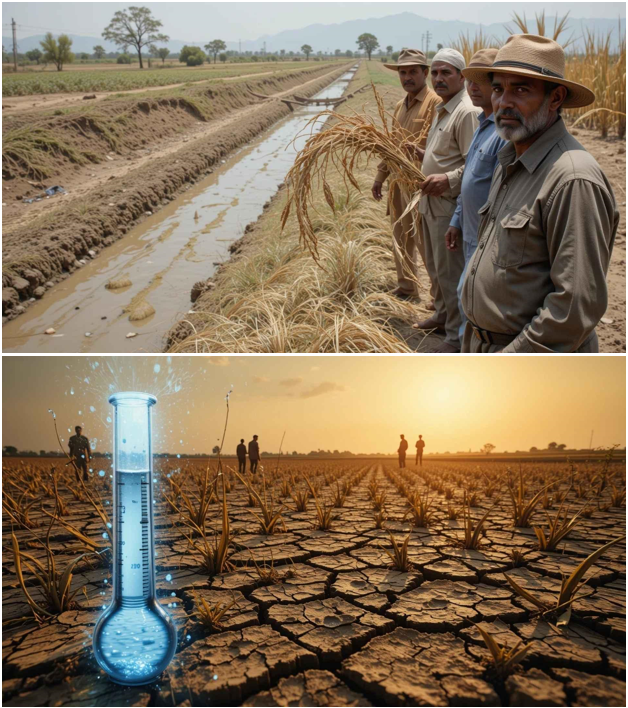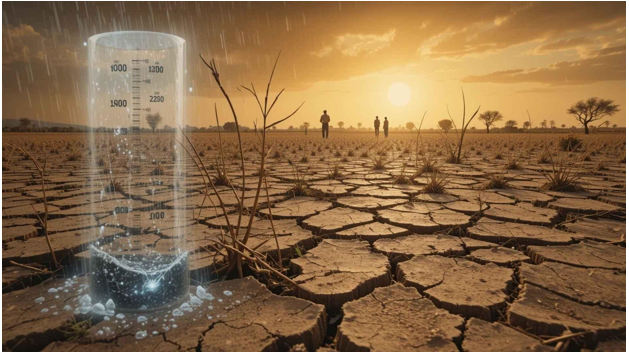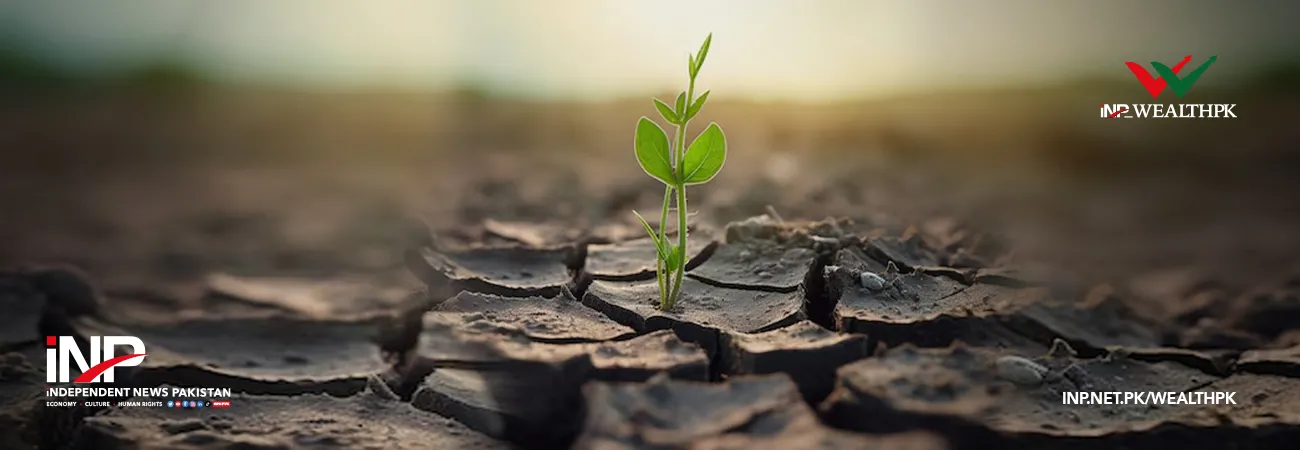INP-WealthPk
Muhammad Saleem
Climate change is posing challenges to the agricultural sector by altering rainfall patterns, threatening productivity, and prompting the Pakistan Meteorological Department (PMD) to raise concerns about an emerging drought crisis. Dr. Ahmed, of the University of Agriculture Faisalabad, said that we have been sounding the alarm about the water crisis caused by climate change for years. However, these warnings have largely been ignored, forcing the PMD to issue fresh alerts.
He said that policymakers are well aware that Pakistan’s economy is deeply rooted in agriculture, supporting millions who are directly and indirectly relying on farming for their livelihoods. However, recent warnings from the PMD have set off alarm bells about severe drought, which could lead to water scarcity, devastate crops, and put food security at risk. This season has seen a disrupted rainfall pattern, a clear sign of impending water shortage that will ultimately hit farmers.
He said our farmers are already grappling with multiple issues, and a drought-like situation will aggravate the situation. He pointed out that with each passing day, water scarcity is becoming a persistent and troublesome problem for the farming community, leaving many unable to irrigate their lands effectively. He said rising temperatures are taking a toll on cultivation patterns, which directly results from climate change.
This alarming situation will drain rivers, reservoirs, and groundwater levels–a ticking bomb for the entire country, particularly the agriculture sector. Regions like Sindh and southern Punjab, already struggling a lot to keep their heads above water, are now facing an imminent threat of water crisis, he added. Farhan Ali , a farmer, told WealthPk that the writing would be on the wall for our agriculture sector if the water crisis worsened.
Many small-scale farmers are already struggling for survival as they lack the resources to irrigate their lands and make ends meet. Without sufficient water, he said they will have no choice but to either abandon fields or switch to less water-intensive crops. “I am pretty sure that the impending water crisis will blow heavily to crops like wheat, rice, and cotton–staples for domestic consumption and exports. It is devastating, honestly.
The ball is in the policymakers’ court to take immediate steps to ensure farmers can get ample water,” he urged. He questioned how farmers would be able to irrigate their fields properly amid reduced water availability. Without water, their hands are tied, and achieving desired productivity will be next to impossible.
“I want to make it crystal clear that lower yields will send prices of commodities through the roof, and people are already battling unbridled inflation,” he added. Like small farmers, he said the low-income families are also struggling for survival. He warned that the water shortage will have a ripple effect across the entire economy. Farmers are being tipped off to dig deeper wells to ensure water availability in future.
“We know this could help farmers, as solar-powered pumps can extract water from the wells. The solution is expensive and not sustainable in the long run,” he explained. “It’s a desperate situation that will force farmers to migrate to cities in search of work, leaving their lands behind. We cannot afford this crisis–we need an immediate solution before we reap what we sow,” he apprehended.


Credit: INP-WealthPk




